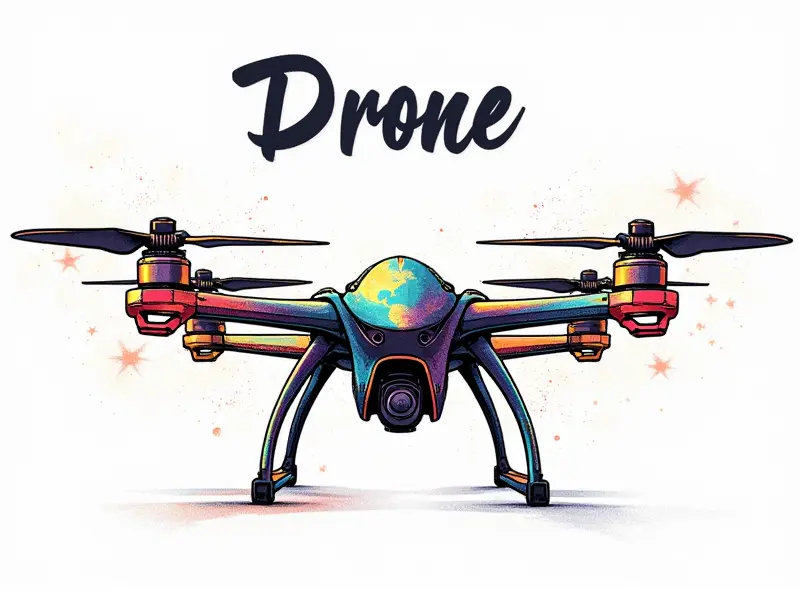Is GPS essential for FPV racing?

Do You Need GPS for FPV Racing?
First-person view (FPV) racing is an exhilarating sport that challenges pilots to navigate through complex courses at high speeds. While GPS technology has become increasingly prevalent in various aspects of drone operation, its necessity in FPV racing remains a topic of debate. This article explores whether GPS is essential for FPV racing and how it impacts performance.
Navigating FPV Races Without GPS
FPV racing primarily relies on the pilot's ability to control their drone using a first-person perspective through a video feed transmitted from an onboard camera. Pilots must rely heavily on visual cues, such as landmarks and course markers, to navigate successfully. In this context, GPS is not a primary requirement for basic navigation.
Is GPS Really Necessary in FPV Racing?
The question of whether GPS is necessary in FPV racing hinges on the specific requirements and challenges faced by pilots during competitions. While GPS can provide valuable data such as altitude and position, it does not directly enhance the core skill set required for successful navigation through an FPV race course.
Can You Win FPV Races Without GPS?
Many top-tier FPV racers have achieved remarkable success without relying on GPS technology. Winning in FPV racing is more about mastering aerial maneuvers, understanding track layouts, and maintaining situational awareness than it is about having precise location data.
Key Skills for Success
- Hand-Eye Coordination: Pilots must have excellent hand-eye coordination to control the drone effectively.
- Spatial Awareness: Understanding three-dimensional space and predicting trajectories is crucial.
- Quick Reflexes: Being able to react swiftly to obstacles and changes in course direction.
Enhancing FPV Racing with GPS Technology
While not essential, integrating GPS technology can offer several advantages for advanced FPV racing. For instance, GPS can help pilots maintain a consistent altitude, which is particularly useful when flying over uneven terrain or in windy conditions.
Benefits of Using GPS
- Altitude Control: Ensuring the drone stays at a steady height throughout the race.
- Position Tracking: Keeping track of the drone's position relative to start and finish lines.
- Safety Features: Implementing safety protocols like return-to-home (RTH) based on GPS data.
The Role of GPS in FPV Drone Racing
The role of GPS in FPV drone racing is multifaceted. While it does not replace the need for skilled piloting, it can complement a pilot's abilities by providing additional information and enhancing situational awareness. However, its use should be carefully balanced against the potential drawbacks.
Potential Drawbacks
- Increased Complexity: Adding GPS technology may complicate drone setup and maintenance.
- Battery Consumption: Active GPS modules can drain battery faster, reducing flight time.
- Satellite Dependency: Relying on satellite signals can lead to performance issues in areas with poor coverage.
Does FPV Racing Depend on GPS?
The dependency of FPV racing on GPS is minimal. The sport's core principles revolve around piloting skills, visual navigation, and strategic planning rather than precise location data. While GPS can offer supplementary benefits, it is not a fundamental requirement for participating in or excelling at FPV races.
Maximizing FPV Performance Without GPS
To maximize performance in FPV racing without relying on GPS technology, pilots should focus on honing their skills and utilizing other tools available to them. This includes:
Training Techniques
- Simulator Practice: Utilizing simulators to practice complex maneuvers.
- Course Familiarization: Studying course layouts in advance and visualizing potential routes.
- Drone Customization: Tailoring drone setups for optimal performance based on race conditions.
GPS vs No GPS: FPV Racing Debate
The debate over whether to use GPS or not in FPV racing centers around the balance between technological assistance and traditional piloting skills. Proponents of using GPS argue that it can improve safety and performance, while opponents highlight its potential drawbacks and emphasize the importance of manual control.
Pros and Cons
- Pros:
- Enhanced altitude control.
- Better position tracking.
- Safety features like RTH.
- Cons:
- Increased complexity and maintenance.
- Battery consumption issues.
- Potential satellite signal interference.
Why GPS Isn't Essential for FPV Racing
The essence of FPV racing lies in the pilot's ability to navigate and control their drone using visual cues and manual skills. While GPS can offer supplementary benefits, it is not essential for achieving success in this competitive sport. Pilots who master the core competencies required for FPV racing can compete at high levels without relying on GPS technology.
The Impact of GPS on FPV Drone Performance
Ultimately, the impact of GPS on FPV drone performance is context-dependent. In scenarios where precise altitude control and position tracking are critical, GPS can provide significant advantages. However, in most cases, the core competencies of piloting skills remain paramount for success.
Conclusion
In conclusion, while GPS technology offers several benefits to FPV racing pilots, it is not essential for achieving high performance and winning races. The sport's fundamental requirements revolve around manual control, visual navigation, and strategic planning. Pilots who focus on honing these skills can excel in FPV racing without relying heavily on GPS.

